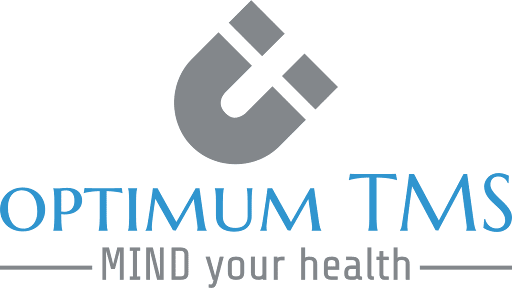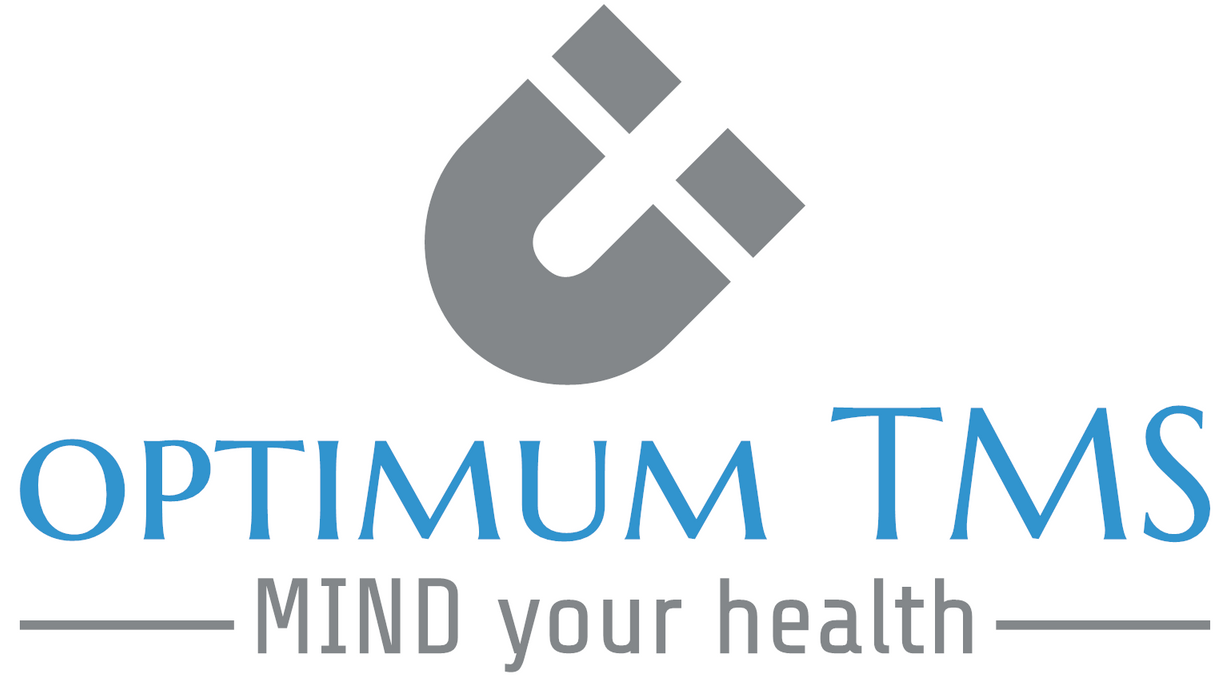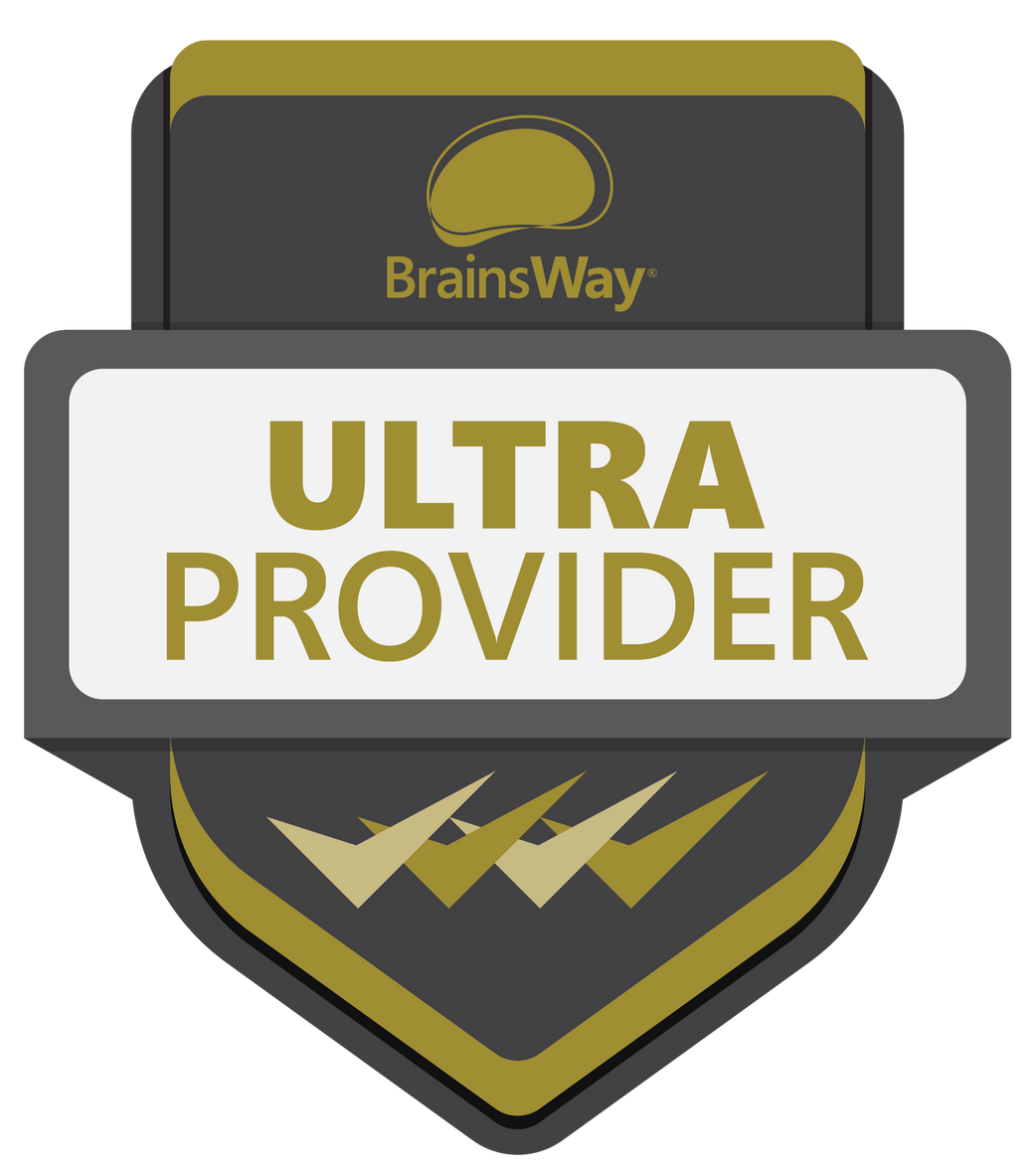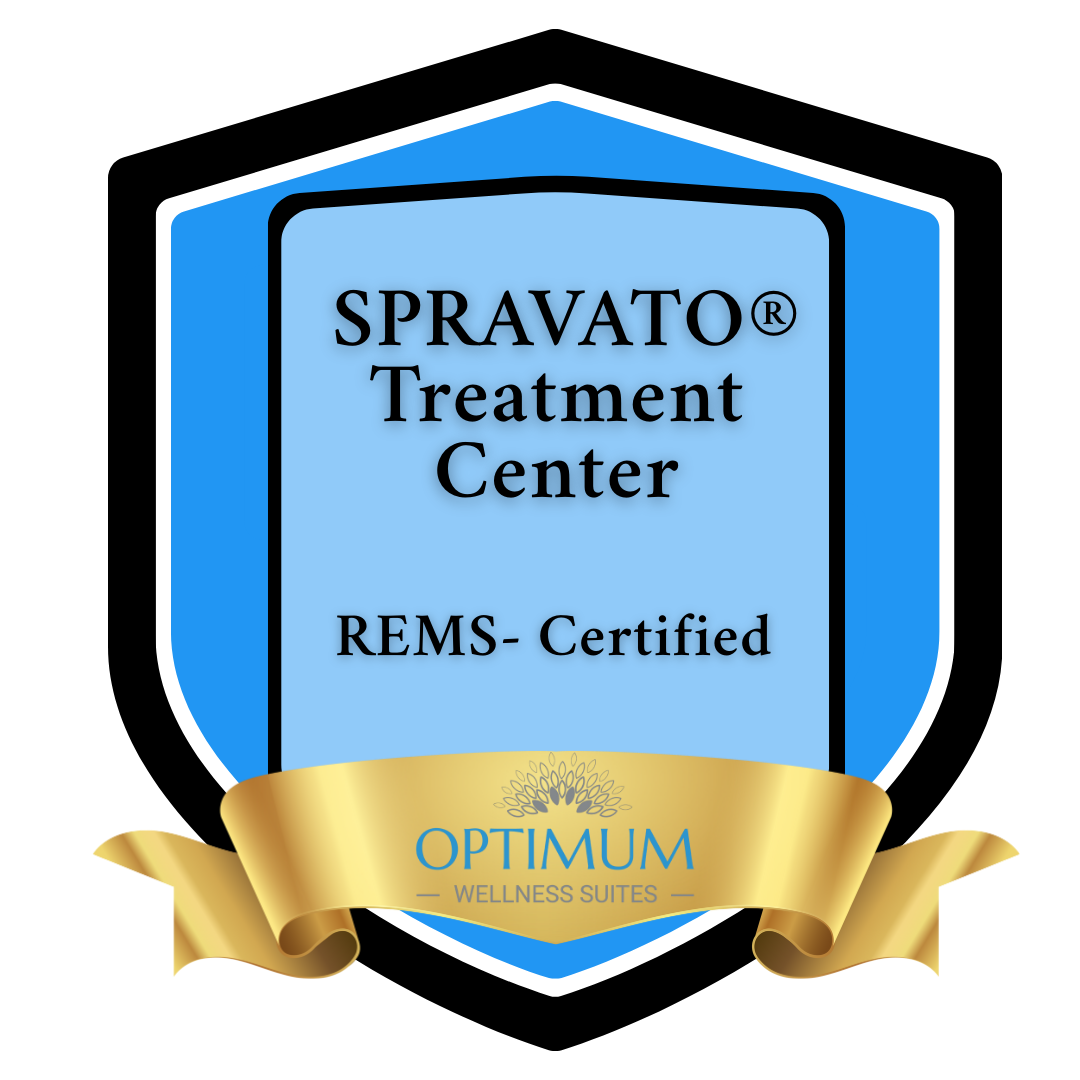Self-Pay Options: Pay upfront or divide costs into manageable installments, for instance, an out-of-pocket cost of $1,000 can be spread over 60 months for as little as $17/month.
We accept most major insurance companies including Medicare, Medicaid, & VA.
We accept most major insurance companies including Medicare, Medicaid, & VA.
TMS Benefits & Side Effects

Transcranial Magnetic Stimulation (TMS) is a treatment we are proud to specialize in. We use emerging technologies with FDA approval to provide modern care for mental health symptoms that can be difficult to treat, such as treatment-resistant depression. Learning about a novel mental health treatment, such as TMS, can be difficult, with a large influx of information to process. In this article, we have summarised key points of possible side effects and the benefits that TMS treatment has to offer.
TMS Benefits & Side Effects

Transcranial Magnetic Stimulation (TMS) is a treatment we are proud to specialize in. We use emerging technologies with FDA approval to provide modern care for mental health symptoms that can be difficult to treat, such as treatment-resistant depression. Learning about a novel mental health treatment, such as TMS, can be difficult, with a large influx of information to process. In this article, we have summarised key points of possible side effects and the benefits that TMS treatment has to offer.
Benefits of TMS Treatment
TMS treatment is effective
The effectiveness of TMS therapy for treatment-resistant depression and OCD is well-documented in academic studies and clinical outcomes. For instance, a study investigating outcomes across multiple TMS centers found a 70% to 80% response rate to TMS treatment.
Special attention should be paid to the fact that of a sample of people who were diagnosed with treatment-resistant depression, most of them had a positive response to TMS treatment. This presents an exciting opportunity for many who experience significant difficulties managing their depressive symptoms.
TMS is non-invasive
TMS does not require anesthesia or the insertion of devices into the body at all. It involves purely external stimulation around the head. Patients remain fully conscious and aware throughout the entire process. This can be a more comfortable, appealing option to patients.
Benefits of TMS Treatment
TMS treatment is effective
The effectiveness of TMS therapy for treatment-resistant depression and OCD is well-documented in academic studies and clinical outcomes. For instance, a study investigating outcomes across multiple TMS centers found a 70% to 80% response rate to TMS treatment.
Special attention should be paid to the fact that of a sample of people who were diagnosed with treatment-resistant depression, most of them had a positive response to TMS treatment. This presents an exciting opportunity for many who experience significant difficulties managing their depressive symptoms.
TMS is non-invasive
TMS does not require anesthesia or the insertion of devices into the body at all. It involves purely external stimulation around the head. Patients remain fully conscious and aware throughout the entire process. This can be a more comfortable, appealing option to patients.

For more information about TMS therapy for depression or to schedule an appointment, call us at
614-822-9489 or
visit our contact page.
TMS treatment does not require ‘take home’ activities
Unlike different therapies, such as psychotherapy, TMS does not involve the patient practicing behavioral skills or actively adjusting thought patterns during their everyday life. Patients are free to return to their daily lives as soon as walking out of the door of the treatment room. This can be ideal for individuals who prioritize ease and simplicity.
However, where possible, combined therapy is encouraged to optimize possible outcomes by addressing different ways mental health symptoms may manifest via different therapeutic mechanisms.
Side Effects of TMS Treatment
Temporary side effects during TMS sessions: Jaw pain and facial twitching.
The TMS machine is able to activate muscle tissue, just like it can activate brain cells. The electromagnetic pulses may be able to reach the patient’s muscles in their forehead or jaw, which can result in muscle twitching in these locations. This is not indicative of a machine malfunction and should not be a cause for concern. Rather, it is a result of how the TMS device interacts with the body.
Temporary side effects after treatment: Scalp discomfort and headaches
Patients may report discomfort where the TMS is placed on the head or headaches in general. Typically, they are alleviated from over-the-counter painkillers and stop occurring after the first few sessions of TMS.
TMS dip
For some patients, a temporary exacerbation of symptoms may occur a few weeks into treatment, termed the TMS ‘dip’. This is temporary and occurs as a result of the disruption to brain activity. During this period, patients may feel as though TMS has worsened their condition and overall mental health. However, once the body adjusts to the changes in neural activity caused by TMS, patients generally experience symptom relief.
It is important to disclose this to your clinician if an exacerbation of symptoms occurs to ensure appropriate progress is taking place or assess whether adjustments need to be made to ensure the best possible outcome.
Compare TMS and esketamine →
Seizure risk
This is a very rare side effect associated with TMS treatment, however it is a side effect nonetheless. A review of various research concluded the risk of TMS-related seizures is <1%.¹ A medical assessment is performed before treatment to determine whether TMS is suitable to your pre-existing health conditions, which may consider a possible history of seizures or epilepsy.
References
¹Stultz, D. J., Osburn, S., Burns, T., Pawlowska-Wajswol, S., & Walton, R. (2020). Transcranial Magnetic Stimulation (TMS) Safety with Respect to Seizures: A Literature Review. Neuropsychiatric disease and treatment, 16, 2989–3000. https://doi.org/10.2147/NDT.S276635
For more information about TMS therapy for depression or to schedule an appointment, call us at
614-822-9489
or
visit our contact page.

TMS treatment does not require ‘take home’ activities
Unlike different therapies, such as psychotherapy, TMS does not involve the patient practicing behavioral skills or actively adjusting thought patterns during their everyday life. Patients are free to return to their daily lives as soon as walking out of the door of the treatment room. This can be ideal for individuals who prioritize ease and simplicity.
However, where possible, combined therapy is encouraged to optimize possible outcomes by addressing different ways mental health symptoms may manifest via different therapeutic mechanisms.
Side Effects of TMS Treatment
Temporary side effects during TMS sessions: Jaw pain and facial twitching
The TMS machine is able to activate muscle tissue, just like it can activate brain cells. The electromagnetic pulses may be able to reach the patient’s muscles in their forehead or jaw, which can result in muscle twitching in these locations. This is not indicative of a machine malfunction and should not be a cause for concern. Rather, it is a result of how the TMS device interacts with the body.
Temporary side effects after treatment: Scalp discomfort and headaches
Patients may report discomfort where the TMS is placed on the head or headaches in general. Typically, they are alleviated from over-the-counter painkillers and stop occurring after the first few sessions of TMS.
TMS dip
For some patients, a temporary exacerbation of symptoms may occur a few weeks into treatment, termed the TMS ‘dip’. This is temporary and occurs as a result of the disruption to brain activity. During this period, patients may feel as though TMS has worsened their condition and overall mental health. However, once the body adjusts to the changes in neural activity caused by TMS, patients generally experience symptom relief.
It is important to disclose this to your clinician if an exacerbation of symptoms occurs to ensure appropriate progress is taking place or assess whether adjustments need to be made to ensure the best possible outcome.
Seizure risk
This is a very rare side effect associated with TMS treatment, however it is a side effect nonetheless. A review of various research concluded the risk of TMS-related seizures is <1%.¹ A medical assessment is performed before treatment to determine whether TMS is suitable to your pre-existing health conditions, which may consider a possible history of seizures or epilepsy.
References
¹Stultz, D. J., Osburn, S., Burns, T., Pawlowska-Wajswol, S., & Walton, R. (2020). Transcranial Magnetic Stimulation (TMS) Safety with Respect to Seizures: A Literature Review. Neuropsychiatric disease and treatment, 16, 2989–3000. https://doi.org/10.2147/NDT.S276635

For more information about TMS therapy for depression or to schedule an appointment, call us at
614-822-9489 or
visit our contact page.
TMS treatment does not require ‘take home’ activities
Unlike different therapies, such as psychotherapy, TMS does not involve the patient practicing behavioral skills or actively adjusting thought patterns during their everyday life. Patients are free to return to their daily lives as soon as walking out of the door of the treatment room. This can be ideal for individuals who prioritize ease and simplicity.
However, where possible, combined therapy is encouraged to optimize possible outcomes by addressing different ways mental health symptoms may manifest via different therapeutic mechanisms.
Side Effects of TMS Treatment
Temporary side effects during TMS sessions: Jaw pain and facial twitching.
The TMS machine is able to activate muscle tissue, just like it can activate brain cells. The electromagnetic pulses may be able to reach the patient’s muscles in their forehead or jaw, which can result in muscle twitching in these locations. This is not indicative of a machine malfunction and should not be a cause for concern. Rather, it is a result of how the TMS device interacts with the body.
Temporary side effects after treatment: Scalp discomfort and headaches
Patients may report discomfort where the TMS is placed on the head or headaches in general. Typically, they are alleviated from over-the-counter painkillers and stop occurring after the first few sessions of TMS.
TMS dip
For some patients, a temporary exacerbation of symptoms may occur a few weeks into treatment, termed the TMS ‘dip’. This is temporary and occurs as a result of the disruption to brain activity. During this period, patients may feel as though TMS has worsened their condition and overall mental health. However, once the body adjusts to the changes in neural activity caused by TMS, patients generally experience symptom relief.
It is important to disclose this to your clinician if an exacerbation of symptoms occurs to ensure appropriate progress is taking place or assess whether adjustments need to be made to ensure the best possible outcome.
Compare TMS and esketamine →
Seizure risk
This is a very rare side effect associated with TMS treatment, however it is a side effect nonetheless. A review of various research concluded the risk of TMS-related seizures is <1%.¹ A medical assessment is performed before treatment to determine whether TMS is suitable to your pre-existing health conditions, which may consider a possible history of seizures or epilepsy.
References
¹Stultz, D. J., Osburn, S., Burns, T., Pawlowska-Wajswol, S., & Walton, R. (2020). Transcranial Magnetic Stimulation (TMS) Safety with Respect to Seizures: A Literature Review. Neuropsychiatric disease and treatment, 16, 2989–3000. https://doi.org/10.2147/NDT.S276635

TMS Treatment at Optimum TMS and Wellness Suites
We understand that novel treatments, such as TMS can be met with apprehension especially if you are hearing about it for the first time. In your consultation with us, we will ensure you are fully informed and feel comfortable with TMS technology before committing to a course of treatment. We make it a priority to create a safe, supportive space for healing your mental health. Book your consultation with us now!
TMS Treatment at Optimum TMS and Wellness Suites
We understand that novel treatments, such as TMS can be met with apprehension especially if you are hearing about it for the first time. In your consultation with us, we will ensure you are fully informed and feel comfortable with TMS technology before committing to a course of treatment. We make it a priority to create a safe, supportive space for healing your mental health. Book your consultation with us now!


TMS Treatment at Optimum TMS and Wellness Suites
We understand that novel treatments, such as TMS can be met with apprehension especially if you are hearing about it for the first time. In your consultation with us, we will ensure you are fully informed and feel comfortable with TMS technology before committing to a course of treatment. We make it a priority to create a safe, supportive space for healing your mental health. Book your consultation with us now!
"I just finished a full course of TMS at Optimum and had a fantastic overall experience! The treatment itself worked even better than I expected - which was shocking for me, given that I have struggled with treatment resistant depression for most of my life and was in the worst depressive episode I’d had in years when I started TMS. My symptoms decreased enough to make a HUGE difference in my day to day life, and it gave me the energy and motivation to keep investing in my mental health post-TMS. The entire staff is thoughtful, funny, and super friendly, and they were always very quick to help me accommodate my changing schedule and work with my insurance..."
Poppi
Services & Resources


Serving Ohio Since 2017
Why Choose Optimum TMS
Our team of board-certified psychiatrists, psychiatric nurse practitioners, TMS technicians, and compassionate administration members are dedicated to providing accessible, patient-centered care and want to ensure your comfort in proceeding with any treatment.

Insurance Accepted
Including Medicare

Financing Available
With CareCredit

Personalized Treatment
Tailored to You
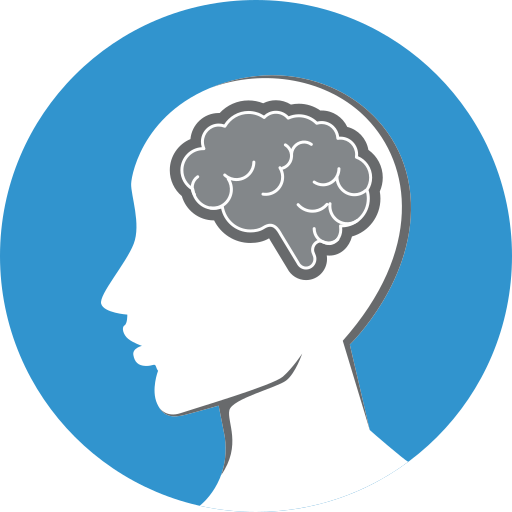
Combined Treatments
Spravato and TMS
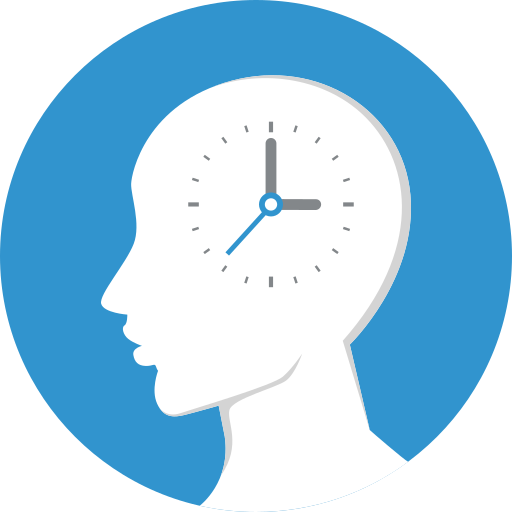
Accelerated TMS
5 Day Relief Program

Expert Care
Board-Certified Psychiatrist

Flexible Plans to Fit Your Budget
We’re committed to making TMS therapy as accessible as possible
Insurance Coverage: We work with leading providers like Aetna, Cigna, Medicare, and more, and can assist in navigating coverage criteria.
CareCredit: Finance your treatment with CareCredit, allowing for tailored payment plans.
Our Treatment Process

You will be seated in a private room, where you are able to watch TV, read, or use your phone during treatment. A TMS device will be positioned on your head and you will feel a tapping sensation every few seconds throughout the session. A TMS technician will remain in the room to ensure your comfort and care. After the session, you will be able to resume daily activities without limitations.
Consultation
You will meet with Dr. Blair to confirm your candidacy for TMS. Dr. Blair will provide a detailed overview of TMS and answer any questions.
Prior Authorization
We handle all the paperwork. The speed of an authorization depends on the insurance company. Typically, 1 day to 2 weeks is a normal speed.
Initial Treatment
Once authorization is obtained, we will contact you to schedule your first appointment. Typically, we can begin TMS within 1 week.
Daily Treatment
Treatments are 5x a week, M-F. You will receive 36 total treatments. Hours of operation are 7 am - 6 pm
Meet with Dr. Blair
On your last treatment day, you will meet with Dr. Blair to discuss outcomes and next steps.
Maintenance Treatment
For those that achieve remission or a significant response to TMS, Maintenance TMS may be an option. Dr. Blair can discuss this with you. This is not covered by insurance.
Contact Us
We will get back to you as soon as possible.
Please try again later.
"I just finished a full course of TMS at Optimum and had a fantastic overall experience! The treatment itself worked even better than I expected - which was shocking for me, given that I have struggled with treatment resistant depression for most of my life and was in the worst depressive episode I’d had in years when I started TMS. My symptoms decreased enough to make a HUGE difference in my day to day life, and it gave me the energy and motivation to keep investing in my mental health post-TMS. The entire staff is thoughtful, funny, and super friendly, and they were always very quick to help me accommodate my changing schedule and work with my insurance..."
Poppi
Services & Resources

Serving Ohio Since 2017
Why Choose Optimum TMS
Our team of board-certified psychiatrists, psychiatric nurse practitioners, TMS technicians, and compassionate administration members are dedicated to providing accessible, patient-centered care and want to ensure your comfort in proceeding with any treatment.


Insurance Accepted
Including Medicare

Financing Available
With CareCredit

Accelerated TMS
5 Day Relief Program

Personalized Treatment
Tailored to You

Combined Treatments
Spravato and TMS

Expert Care
Board-Certified Psychiatrist

Flexible Plans to Fit Your Budget
We’re committed to making TMS therapy as accessible as possible

Self-Pay Options: Pay upfront or divide costs into manageable installments, for instance, an out-of-pocket cost of $1,000 can be spread over 60 months for as little as $17/month.

Insurance Coverage: We work with leading providers like Aetna, Cigna, Medicare, and more, and can assist in navigating coverage criteria.

CareCredit: Finance your treatment with CareCredit, allowing for tailored payment plans.
Our Treatment Process

You will be seated in a private room, where you are able to watch TV, read, or use your phone during treatment. A TMS device will be positioned on your head and you will feel a tapping sensation every few seconds throughout the session. A TMS technician will remain in the room to ensure your comfort and care. After the session, you will be able to resume daily activities without limitations.
Consultation
You will meet with Dr. Blair to confirm your candidacy for TMS. Dr. Blair will provide a detailed overview of TMS and answer any questions.
Prior Authorization
We handle all the paperwork. The speed of an authorization depends on the insurance company. Typically, 1 day to 2 weeks is a normal speed.
Initial Treatment
Once authorization is obtained, we will contact you to schedule your first appointment. Typically, we can begin TMS within 1 week.
Daily Treatment
Treatments are 5x a week, M-F. You will receive 36 total treatments. Hours of operation are 7 am - 6 pm
Meet with Dr. Blair
On your last treatment day, you will meet with Dr. Blair to discuss outcomes and next steps.
Maintenance Treatment
For those that achieve remission or a significant response to TMS, Maintenance TMS may be an option. Dr. Blair can discuss this with you. This is not covered by insurance.
Contact Us
Call
614-933-4200
or complete our simple online form.

Contact Us
We will get back to you as soon as possible.
Please try again later.
"I just finished a full course of TMS at Optimum and had a fantastic overall experience! The treatment itself worked even better than I expected - which was shocking for me, given that I have struggled with treatment resistant depression for most of my life and was in the worst depressive episode I’d had in years when I started TMS. My symptoms decreased enough to make a HUGE difference in my day to day life, and it gave me the energy and motivation to keep investing in my mental health post-TMS. The entire staff is thoughtful, funny, and super friendly, and they were always very quick to help me accommodate my changing schedule and work with my insurance..."
Poppi
Services & Resources

Serving Ohio Since 2017
Why Choose Optimum TMS
Our team of board-certified psychiatrists, psychiatric nurse practitioners, TMS technicians, and compassionate administration members are dedicated to providing accessible, patient-centered care and want to ensure your comfort in proceeding with any treatment.


Insurance Accepted
Including Medicare

Financing Available
With CareCredit

Accelerated TMS
5 Day Relief Program

Personalized Treatment
Tailored to You

Combined Treatments
Spravato and TMS

Expert Care
Board-Certified Psychiatrist

Flexible Plans to Fit Your Budget
We’re committed to making TMS therapy as accessible as possible

Self-Pay Options: Pay upfront or divide costs into manageable installments, for instance, an out-of-pocket cost of $1,000 can be spread over 60 months for as little as $17/month.

Insurance Coverage: We work with leading providers like Aetna, Cigna, Medicare, and more, and can assist in navigating coverage criteria.

CareCredit: Finance your treatment with CareCredit, allowing for tailored payment plans.
Our Treatment Process

You will be seated in a private room, where you are able to watch TV, read, or use your phone during treatment. A TMS device will be positioned on your head and you will feel a tapping sensation every few seconds throughout the session. A TMS technician will remain in the room to ensure your comfort and care. After the session, you will be able to resume daily activities without limitations.
Consultation
You will meet with Dr. Blair to confirm your candidacy for TMS. Dr. Blair will provide a detailed overview of TMS and answer any questions.
Prior Authorization
We handle all the paperwork. The speed of an authorization depends on the insurance company. Typically, 1 day to 2 weeks is a normal speed.
Initial Treatment
Once authorization is obtained, we will contact you to schedule your first appointment. Typically, we can begin TMS within 1 week.
Daily Treatment
Treatments are 5x a week, M-F. You will receive 36 total treatments. Hours of operation are 7 am - 6 pm
Meet with Dr. Blair
On your last treatment day, you will meet with Dr. Blair to discuss outcomes and next steps.
Maintenance Treatment
For those that achieve remission or a significant response to TMS, Maintenance TMS may be an option. Dr. Blair can discuss this with you. This is not covered by insurance.
Contact Us
Call
614-933-4200
or complete our simple online form.

Contact Us
We will get back to you as soon as possible.
Please try again later.
Business Hours
- Mon - Fri
- -
- Sat - Sun
- Closed
Contact Us
Business Hours
- Mon - Fri
- -
- Sat - Sun
- Closed
Contact Us
Our Services
Quick Links
Business Hours
TMS:
- Mon - Fri
- -
- Sat - Sun
- Closed
Wellness Suites:
- Mon - Fri
- -
- Sat - Sun
- Closed

